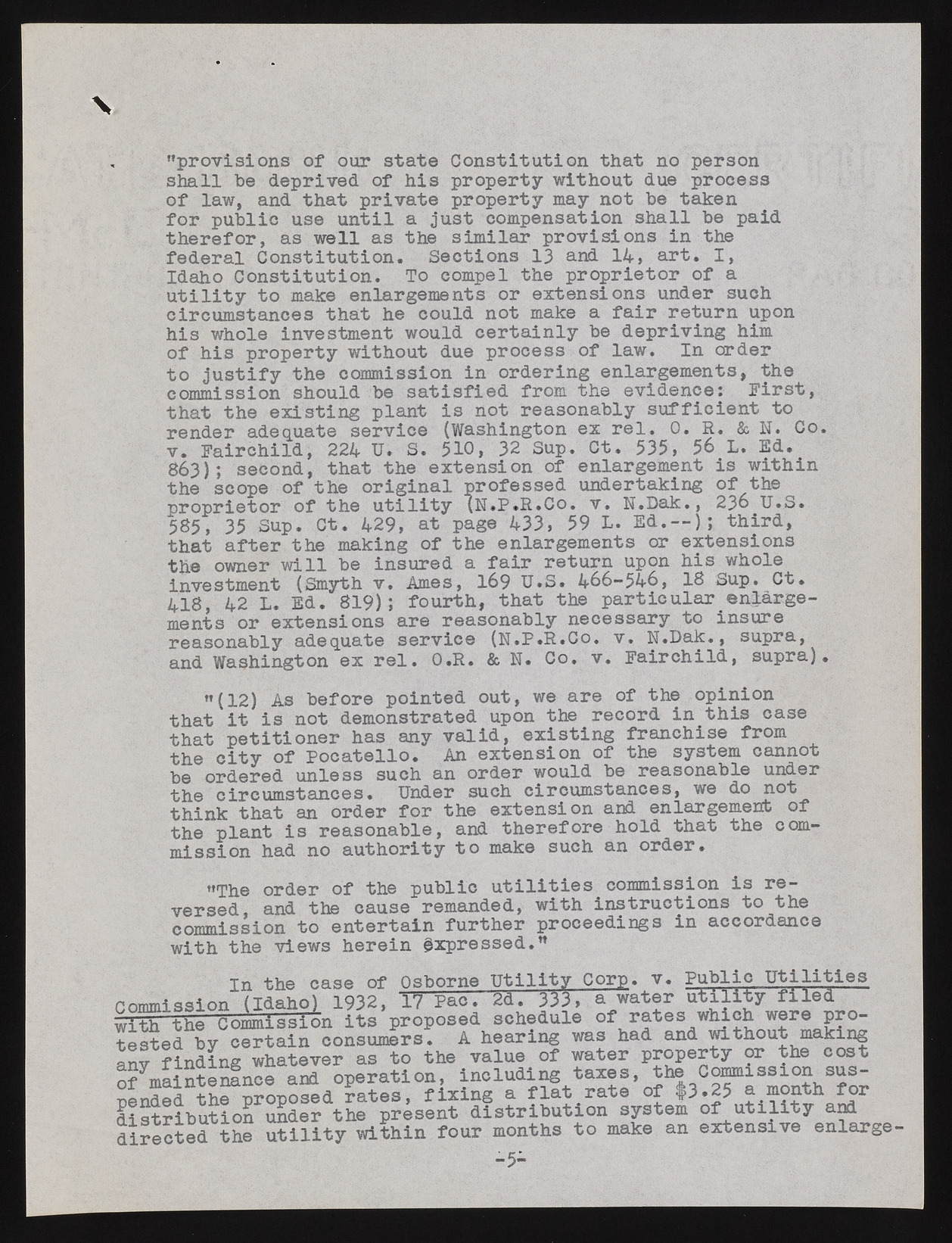Copyright & Fair-use Agreement
UNLV Special Collections provides copies of materials to facilitate private study, scholarship, or research. Material not in the public domain may be used according to fair use of copyrighted materials as defined by copyright law. Please cite us.
Please note that UNLV may not own the copyright to these materials and cannot provide permission to publish or distribute materials when UNLV is not the copyright holder. The user is solely responsible for determining the copyright status of materials and obtaining permission to use material from the copyright holder and for determining whether any permissions relating to any other rights are necessary for the intended use, and for obtaining all required permissions beyond that allowed by fair use.
Read more about our reproduction and use policy.
I agree.Information
Digital ID
Permalink
Details
More Info
Rights
Digital Provenance
Publisher
Transcription
\ "provisions of our state Constitution that no person shall he deprived of his property without due process of law, and that private property may not be taken for public use until a just compensation shall be paid therefor, as well as the similar provisions in the federal Constitution. Sections 13 and 14, art. I, Idaho Constitution. To compel the proprietor of a utility to make enlargements or extensions under such circumstances that he could not make a fair return upon his whole investment would certainly be depriving him of his property without due process of law. In order to justify the commission in ordering enlargements, the commission should be satisfied from the evidence: First, that the existing plant is not reasonably sufficient to render adequate service (Washington ex rel. 0. R. & N. Co. v. Fairchild, 224 U. S. $10, 32 Sup. Ct. 535, 56 L. Ed. 863); second, that the extension of enlargement is within the scope of the original professed undertaking of the proprietor of the utility (N.P.R.Co. v. N.Dak., 236 U.S. 585, 35 Sup. Ct. 429, at page 433, 59 L. Ed.--); third, that after the making of the enlargements or extensions th© owner will be insured a fair return upon his whole investment (Smyth v. Ames, 169 U.S. 466-546, 18 Sup. Ct. 418, 42 L. Ed. 819); fourth, that the particular enlargements or extensions are reasonably necessary to insure reasonably adequate service (N.P.R.Co. v. N.Dak., supra, and Washington ex rel. O.R. & N. Co. v. Fairchild, supra). "(12) As before pointed out, we are of the opinion that it is not demonstrated upon the record in this case that petitioner has any valid, existing franchise from the city of Pocatello. An extension of the system cannot be ordered unless such an order would be reasonable under the circumstances. Under such circumstances, we do not think that an order for the extension and enlargement of the plant is reasonable, and therefore hold that the commission had no authority to make such an order. "The order of the public utilities commission is reversed, and the cause remanded, with instructions to the commission to entertain further proceedings in accordance with the views herein Expressed." In the case of Osborne Utility Corp. v. lities rnmmission (Idaho) 1932, 17 Pac. 2d. 333, a water utility filed w S the Commission its proposed schedule of rates which were protested by certain consumers. A hearing was had and without making anv finding whatever as to the value of water property or the cost S yBliStemnoe and operation, including tares, the Commission sus- •nonriftfl the nronosed rates, fixing a flat rate of $3*25 a month for distribution under the present distribution system of utility and directed the utility within four months to make an extensive enlarge- -5-

